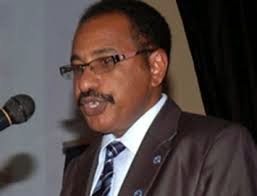Tuesday, April 22, 2014
Government to curb shortage of qualified health practitioners
The government through the ministry of Health and Social Welfare has laid down strategies that would help curb with the increased shortage of graduate health practitioners in public hospitals in the country. Currently, most public hospitals lacks qualified health personnel resulting into poor performance that renders the required targets for the ministry’s Big Results Now (BRN). Outlining the ministry’s strategic work plans, the Minister for Health and Social Welfare, Dr. Seif Seleman Rashid said that, among the most urgent step is set to increase the number of students’ intake in various health training colleges registered by National Council for Technical Education (NACTE) . He said, ‘the government is set to increase student’s intake from currently 7,000 to 10,000 effective from 2014/15 financial year. To accomplish the need, however he noted that a University college of Muganzila being a constituent part of the Muhimbili University College of Health Science (MUCHS) will be opened this year with a view to increase more student’s intake as part of development initiative. He said in a telephone interview on Friday last week that, other work plans to be undertaken by his ministry are to create a conducive environment which would enable private sectors to increase their investments.
Tanzania's Minister for Health and Social Welfare, Dr. Seif Seleman Rashid.
In this way the minister noted that, the role of private sector would ensure an effective participation in the promotion of health services activities in the country. He further noted that, his ministry has taken a keen interest to curb with the persisting problem which he said is important to the lives of many Tanzanians especially those living in rural areas. The minister was contacted for clarification amid reports the ministry issued early this week attributing the decreasing number of qualified health practitioners in public hospitals. According to the report issued by the ministry’s Deputy Permanent Secretary, Prime Minister's Office (Regional Administration and Local Government) Dr Deo Mtasiwa, the ministry is currently faced with 4,000 shortages of qualified health staff during the 2013/14 financial year. Dr Mtasiwa said despite the challenges, the shortage of health workers has slightly decreased from 68 percent in 2007 to 42 percent this year. According to 2010 statistics the doctor-patient ratio in Tanzania stands at one doctor to 72,000 patients. For assistant medical doctors it is one to 27,000 patients while for nurses it is one to 4,000 patients. According to WHO, the recommended ratio is one medical doctor to 30,000 patients.
Subscribe to:
Post Comments (Atom)












No comments:
Post a Comment